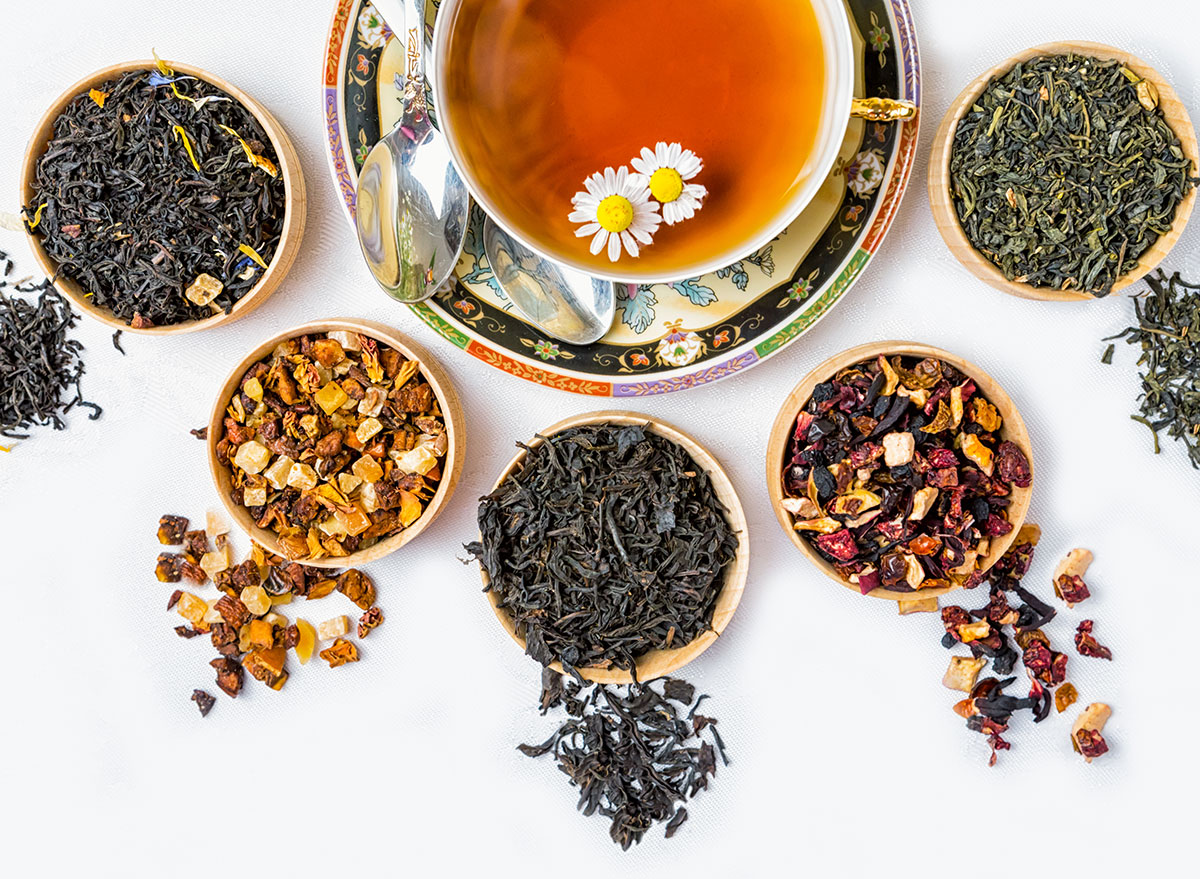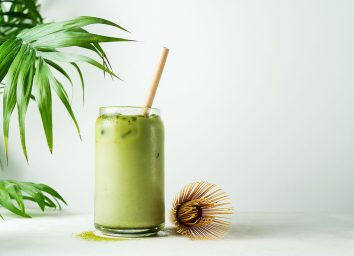What Happens to Your Heart When You Drink Tea

If you want to learn all about how drinking tea can impact your heart, you'd better put the kettle on. There are dozens of studies suggesting that lowering your risk of heart disease may be as flavorful as sampling a wide variety of black, green, white, and even herbal teas.
Let this one steep a bit: A large observational study in the European Journal of Preventive Cardiology analyzed health and behavioral information from 100,000 Chinese people for more than seven years. The 2020 report found that habitual tea drinkers who drank more than three cups of tea a week had a 20% lower risk of heart attack and a 22% lower risk for dying of heart disease when compared with people who drank fewer than three cups weekly.
Another study of more than 40,000 Japanese adults in the Journal of the American Medical Association saw a 26% lower risk of death from a heart attack or stroke in people who drank more than five cups of green tea a day. (Related: What Happens To Your Body When You Drink Green Tea.)
How is tea so good for your heart?
To understand why drinking tea may be so good for your heart, we need to look at how your blood pressure affects your heart health. High blood pressure, called hypertension, damages the walls of your arteries making them stiff and possibly leading to blockages.
The higher your blood pressure readings, the more risk you have for cardiovascular disease (CVD), heart disease, and stroke. When your blood vessels aren't as elastic as they should be, the flow of blood and oxygen to and from your heart decreases, leading to chest pain, and possibly heart attack or heart failure. (If high blood pressure runs in your family, be sure to read about these Foods Proven to Lead to High Blood Pressure.)
"Research is showing that high tea consumption leads to a healthier heart and reduced risk of disease," says nutritionist Lisa Richards, CNC, creator of the Candida Diet. "This is because teas contain beneficial plant compounds known as polyphenols that act as antioxidants in the body."
Tea and its metabolites like polyphenols play a role in relaxing arteries by reducing inflammation and enhancing the activity of nitric oxide in the endothelium, the layer of cells lining the inside of blood vessels. Nitric oxide is a vasodilator that causes the endothelium to relax, widening blood vessels and improving blood flow, according to a study in Nutrients.
Tea's key compound is EGCG.
Tea may also significantly lower the risk of heart disease and stroke by reducing low-density lipoprotein (LDL), the "bad" cholesterol that can build up in arteries and form plaques.
"Green tea is full of polyphenols and catechins, two antioxidant compounds recognized for their anti-inflammatory properties," says culinary and tea expert Kristen Lorenz at The Spice & Tea Exchange.
"Green tea is a particularly rich source of a potent form of catechin called epigallocatechin gallate, or EGCG, that's been shown to 'turn off' the genes that trigger obesity, diabetes and the storage of belly fat," according to Kelly Choi, author of our Eat This, Not That! book, The 7-Day Flat-Belly Tea Cleanse.
Gimmie a tea for triglycerides!
According to Nutrition Journal, green tea has also been shown to improve cholesterol levels. But if you prefer the taste of black tea to green, don't worry.
"Black tea has been found to both lower triglycerides, a dangerous blood fat, and raise HDL (good) cholesterol because of the polyphenols found within this tea," says Richards. "These compounds give teas their bright colors, which means herbal teas provide a host of polyphenols resulting in similar benefits as well."
For more tips for your ticker, read Simple Ways to Keep Your Heart Healthy.








